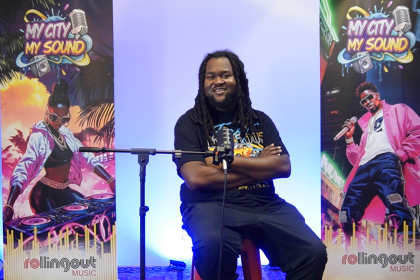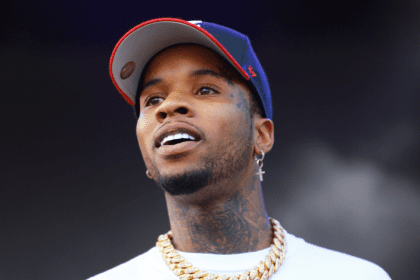Digital culture experts still trying to figure out what “hawk tuah” means

Scientists confirm internet has gone completely feral
In what researchers are describing as the pinnacle of digital anarchy, the internet of 2024 has officially transcended any semblance of human logic. The once semi-navigable world of online culture has now devolved into a chaotic mix of memes, trends, and inexplicable phenomena that require a PhD in both quantum physics and TikTok choreography to decipher.
Experts warn this feral state of the internet isn’t a passing phase but a full-blown evolutionary leap. And while some users embrace the madness, others are left wondering if it’s time to unplug and start growing their own vegetables.
Meme literacy now more complex than actual literacy
Understanding a single meme now requires extensive knowledge
Don Caldwell, editor-in-chief of Know Your Meme and self-proclaimed internet archaeologist, has confirmed that the meme landscape has become an intellectual minefield. To decode modern memes, one must possess fluency in 47 previous meme formats, a working grasp of three dead languages, and a postgraduate understanding of Shrek lore.
“Memes today are no longer just jokes—they’re digital hieroglyphs,” Caldwell explained while scrolling through a particularly cryptic SpongeBob reference. “It’s not just about knowing the image; you have to understand the entire cultural history behind it.”
For the average internet user, keeping up has become a Herculean task. Many are opting out, claiming, “I don’t have the time or the willpower to learn why a single picture of a cat is funny anymore.”
Charli XCX convinces everyone being a brat is actually good
Pop star Charli XCX leads a cultural rebranding
In a plot twist no one saw coming, Charli XCX’s latest album, Brat, has managed to turn what was once seen as “problematic behavior” into a badge of honor. With tracks celebrating honesty, bluntness, and the art of being “just a little too much,” Charli has redefined bratty behavior as a desirable personality trait.
Fans and critics alike are calling the album a “masterstroke of self-awareness.” Grammy voters, meanwhile, are still trying to figure out how to categorize it.
“It’s a rebellion against niceties,” one fan explained. “If Charli can own being a brat and turn it into a Grammy nomination, why can’t I yell at a barista for misspelling my name?”
Twitter users discover other websites exist
The platform’s rebranding has backfired spectacularly
When Elon Musk announced the rebranding of Twitter to “X,” the internet reacted predictably: with memes, confusion, and, most importantly, a mass migration. Disillusioned users have finally discovered that the internet is, in fact, a vast expanse of platforms beyond the former bird app.
“Wait, there’s a website where I can just post pictures of my soup without a 300-tweet argument about politics breaking out?” asked one newly liberated user after joining Instagram. Others have flocked to Reddit, Discord, and smaller niche platforms, seeking refuge from whatever it is Musk has been up to.
The exodus hasn’t gone unnoticed. Social media analysts are dubbing it the “Great X-odus,” and advertisers are scrambling to follow the traffic. Meanwhile, “X” remains a land of unexplained chaos, fewer users, and suspiciously high levels of crypto spam.
Olympics accidentally creates more memes than medals
Athletic excellence overshadowed by viral content
The 2024 Olympics saw breathtaking performances, record-breaking achievements, and a Norwegian swimmer who somehow became a meme icon. While Team USA walked away with 125 medals, the real star of the games was TikTok.
Henrik Christiansen, the Norwegian swimmer in question, unknowingly turned his pre-race rituals into internet gold. A clip of him psyching himself up with an elaborate dance now has more views than the actual race.
Experts say this trend highlights a fundamental shift in priorities: athletes are no longer just competing for gold—they’re vying for the ultimate prize of internet virality. As one coach put it, “Why train for years when a 15-second clip of you slipping on the pool deck will get more attention?”
AI produces digital content that makes less sense than humans
Artificial intelligence joins the chaos party
In the most ironic twist yet, artificial intelligence—designed to mimic human logic—has instead leaned all the way into internet absurdity. The rise of “AI slop,” a phenomenon where machine-generated memes and videos make no discernible sense, has left experts scratching their heads.
One viral AI-generated video showed a dog reciting Shakespeare while breakdancing in space. Despite its nonsensical premise, the clip garnered millions of views. “It’s like the internet found its true mirror,” remarked one researcher.
While some hail this as a triumph of creativity, others fear the machines are simply trolling us. “If AI was supposed to make us smarter, why do I feel dumber every time I see one of these?”
The future of the internet: feral forever?
As 2024 rolls on, the internet shows no signs of returning to its pre-chaos state. With memes evolving faster than languages and TikTok trends disappearing before most people can learn them, experts agree we’ve crossed a point of no return.
Whether this feral state leads to the downfall of digital culture or its ultimate peak remains to be seen. One thing is certain: in the wild, wild web of 2024, sanity is optional, and everyone is just trying to keep up.















